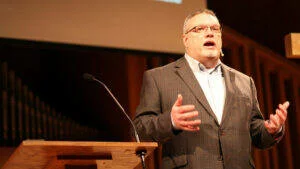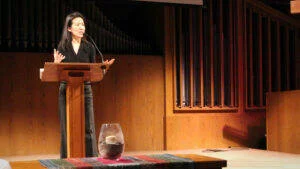Jesus is the center and substance of Scripture. For our forebears in faith this is an uncontroversial and essential assumption for exegesis. Apart from faith in Christ—itself a gift from the Spirit—Scripture will not open itself. And so, as Christopher Hall puts it, the church fathers and reformers “read Scripture through the prism of Christ’s incarnation, crucifixion, resurrection, and ascension.”
John Donne (1572–1631), a poet who left Catholicism to become an Anglican minister, exemplifies this Christocentric hermeneutic one Trinity Sunday in a sermon on Psalm 2:10-12, asserting that the One who with the Father and the Holy Spirit creates and sustains all things has become our brother; the inconceivably transcendent God is present among us.
There is no person so near of kin to you as Christ Jesus. Christ Jesus your father created you; he is your brother because he took your nature. He is your father because he provided an inheritance for you; he is your brother because he divided this inheritance with you. And because he died to give you possession of that inheritance, he is the Nourishing One, your foster father who has nursed you in his house, in the Christian church. He is your twin brother, so similar to you that his Father and yours in him, will not know you from one another but will mingle your conditions: he finds your sins in him and his righteousness in you. “Kiss this Son” as your kinsman.








Comments
Be the first one to make a comment!